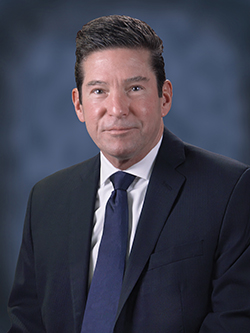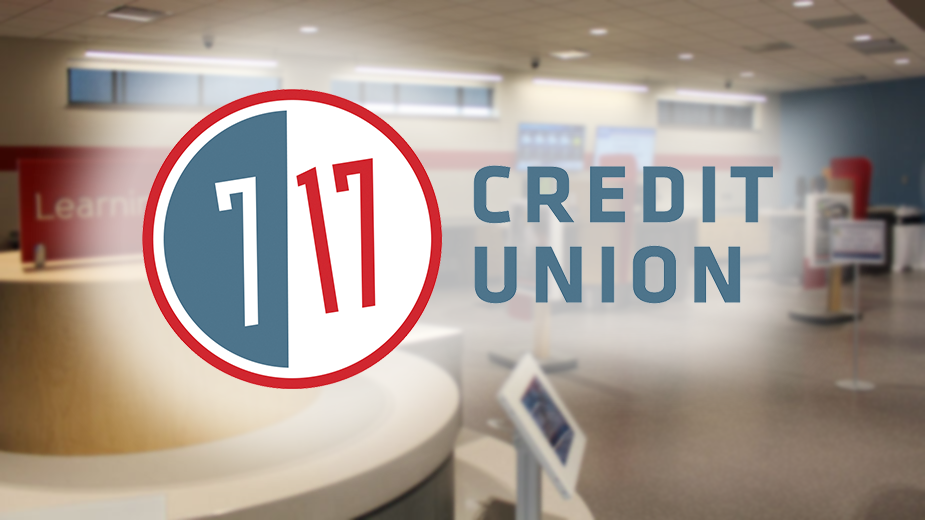WARREN, Ohio – Throughout his 46-year career at 717 Credit Union in Warren, Gary Soukenik has witnessed substantial change in the financial services industry.
Competition in the market has stiffened with the arrival of fintech – financial technology – firms, while every year a new layer of regulations and compliance burdens are introduced to the credit unions.
Still, the retiring president and CEO – his successor, John Demmler, will take over Nov. 1 – says that 717 is positioned well to expand in the future and meet the needs of customers in what has become a very dynamic institution. Soukenik will remain with the credit union several weeks thereafter to assist with the transition.


“I don’t think there’s any technology that our members need and want and deserve that we cannot afford to provide to them right now,” Soukenik says. “There’s nothing missing. I think we’ve got it all.”
For the second consecutive year, 717 was named to Forbes’ list of Best Credit Unions in Each State 2023. Each year, only 3% of credit unions across the country are recognized.
In the Mahoning Valley, the credit union has served as a face of resilience in a region that has undergone seismic economic upheavals over the past four decades.
In 1957, hourly workers of what was then the Packard Electric Division of General Motors established the credit union with an infusion of $75. When Soukenik assumed the role of CEO in 1980, he says its assets stood at $39 million. Today, those assets have grown to $1.6 billion.
“Fortunately, we had a board of directors that had the foresight to provide a full-service financial institution,” he says. “We always felt that growth that benefits our members is good,” rather than to expand for the sake of growth.
When Soukenik began his career with 717 in 1977, the credit union had one office and the regulatory environment was less onerous. Today 717 has 13 offices.
Among the most important decisions the credit union made was to diversify its services and expand the membership, he says. “When Delphi [formerly Packard Electric] went through its bankruptcy [during the mid-2000s], I remember the media coming in and saying it was the end of the credit union,” he recalls.
That was never the case, Soukenik says. By that time, 717 had diversified its membership and was no longer tied to a single industry. “Our board recognized the need to diversify – to get away from one industry,” he says.
The articles of incorporation were modified during the late 1970s, Soukenik says, after Ohio allowed credit unions to expand their charters and serve other employers or groups that were not enrolled in another credit union. Subsequently, state law was modified that allowed 717 to accept people who lived and worked in Mahoning, Trumbull and Columbiana counties.
The credit union today serves more than 110,000 members across six counties. “It’s a whole different world today than what it was in 1977,” Soukenik says. “Our audit department was so much smaller back then.”
Compliance challenges today, however, are not limited to the audit division, Soukenik says. “We have people in all areas of the credit union dealing with compliance.”
Technology and online services have nevertheless opened doors for the credit union, he says. “We were excited about putting in ATMs back then,” he says with a laugh.
It’s imperative that 717 Credit Union continues to grow so it can reinvest in new technology that can better serve its members, Soukenik says.
He emphasizes Demmler is well suited to take the helm and lead the team. “John has great experience. But more importantly, John has great values,” Soukenik says. “Those values align with 717 Credit Union.”
Demmler, a Columbus native, began his career in the financial services industry nearly 25 years ago. After spending time in banking in Chicago and Columbus, Demmler says he pursued a career in the credit union sector.
“I had an opportunity to join the credit union movement,” he says. “The credit union movement fit my personal passion and purpose in life, which is committed to financial inclusion and economic development.”
That opportunity took him to Austin, Texas, where he served as the chief lending officer and senior vice president of corporate strategy at A+ Federal Credit Union.
Credit unions can offer their members higher rates on CDs and lower rates on loans, Demmler says, because they are not-for-profit. The industry also displays a commitment to financial inclusion and giving back to the communities these institutions serve, he says.
“I think that culture of purpose differentiates credit unions from other financial institutions,” he says.
Demmler plans to build on the legacy that Soukenik leaves, he says, as the credit union looks ahead.
“717 is one of the best credit unions in the country,” he says. “There will be a continuity of purpose – a continuity of leadership, of providing stability and opportunities for our employees.”
As for Soukenik, the CEO says his retirement is bittersweet as he looks back on the challenges and the fun that came with his time at 717. He expects to spend more time with family and traveling – not to mention brushing up on his guitar skills.
Moreover, the future of the credit union is in good hands, Soukenik says with emphasis. “I want to assure people that although there’s a change in leadership, there won’t be any changes in any direction of the credit union or objectives or the mission of the credit union.”
“Our brand is treating people with dignity and respect. That’s what’s made us what we are and that’s not going to change,” he says.
